Greta Van Fleet's Jake Kiszka: “I work very hard to articulate chords and notes. All of that sensitivity and technicality gets lost when you have too much overdrive“
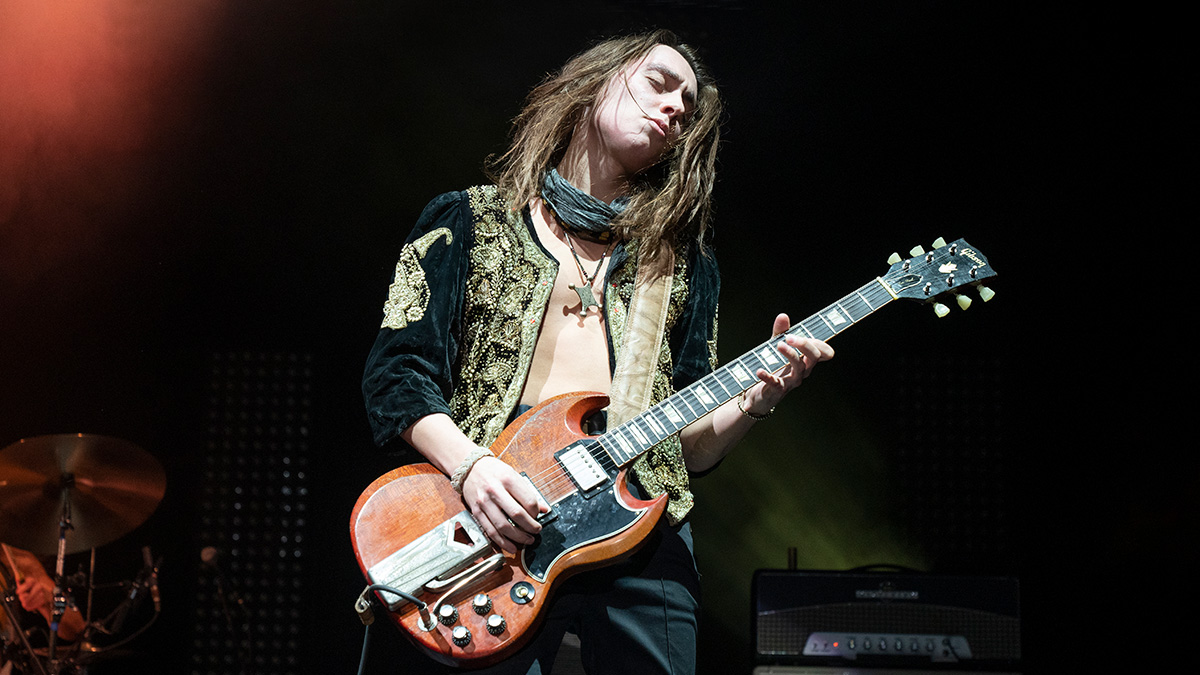
“Art is supposed to elicit strong reactions, isn’t it?” Jake Kiszka asks rhetorically. The Greta Van Fleet guitarist is considering the extreme, diametrically opposed responses his band has received since they first topped radio playlists in 2017 with their single, Highway Tune.
On the one side, there are those who have hailed the Michigan quartet as the brightest young band of this millennium and the red-hot shot of adrenaline that rock has sorely needed. On the other side, there are the detractors who have tagged the group as nothing more than competent yet shameless Led Zeppelin clones. It’s a “love ’em or hate ’em” proposition with little gray area in between.
After four years of it, Kiszka isn’t letting any such noise get to him; in fact, he takes a philosophical – and surprisingly welcoming – view of the band’s polarizing nature.
“I actually think it’s a beautiful thing,” he says. “There’s something sort of perfect about having one or another direct response to what we’re doing. It’s the essential point, really. Music can affect somebody in a very loving, peaceful or inspirational way, or it can go the other way and you have a determined opposite reaction in which people are infuriated by it. I think that’s the objective of all artists.”
Music can affect somebody in a very loving, peaceful or inspirational way, or it can go the other way
In the years since their arrival, the band (which also includes Kiszka’s two brothers – Josh on lead vocals and Sam on bass and keyboards – along with drummer Danny Wagner) has come a long way, issuing two EPs, Black Smoke Rising and From the Fires, as well as their 2018 full-length Anthem of the Peaceful Army, all of them brimming with rollicking riffs, hammer-of-the-gods-like rhythms and epic, high-register vocals.
They’ve topped Billboard charts, collected a Grammy (for From the Fires) and toured the world several times. But along with their success, the band members have still been unable to shake the nagging perception that they’re simply Seventies FM-radio revivalists adopting a modern sheen.
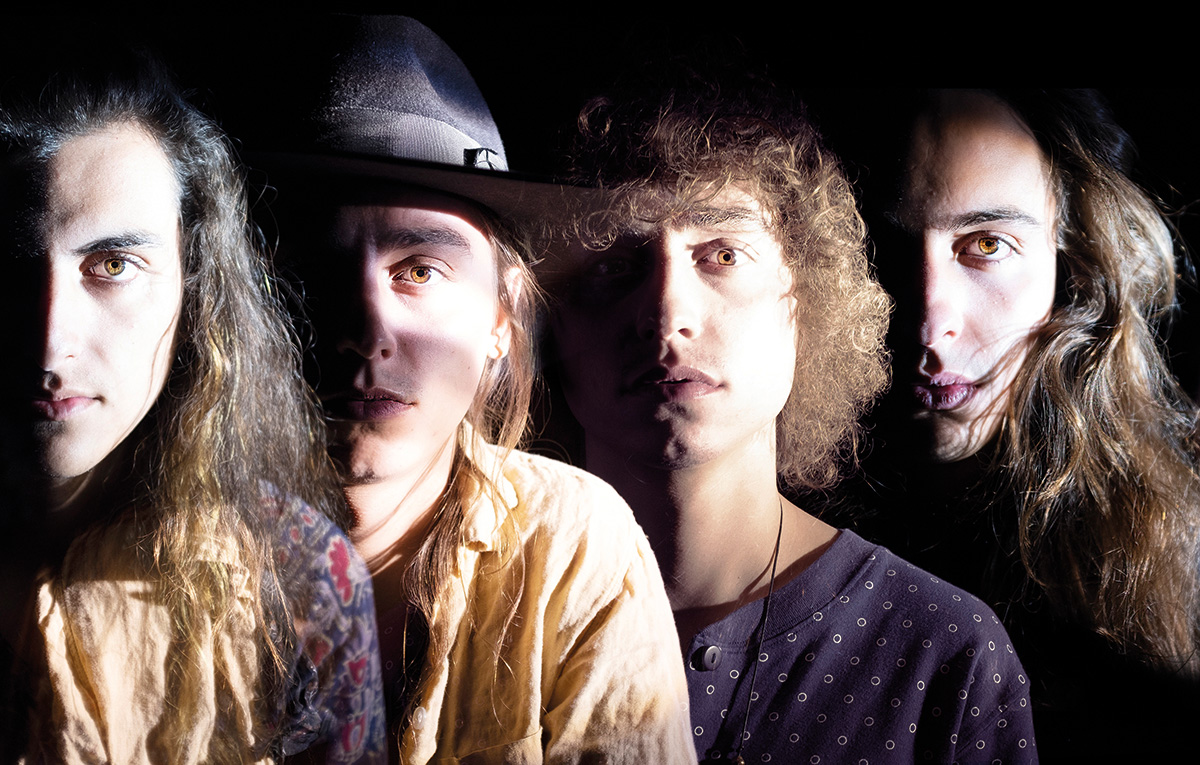
“It’s somewhat perplexing,” Kiszka says. “I think one has to establish the fact that we are commonly referred to as a ‘classic rock band’ or a ‘throwback band’ to comment on that. I’ve always thought it would be really puzzling to try to identify ourselves in those ways, because I think we’re very much a product of our environment, politically and societally speaking.
Get The Pick Newsletter
All the latest guitar news, interviews, lessons, reviews, deals and more, direct to your inbox!
"When I wake up tomorrow, I’m still going to be living in a world that surrounds me and influences me, and I think we’re contemporary in our flesh and blood.” Which is another way of saying that he’s having none of it.
Blues is at the heart of my dominant influences, and the same goes for the rest of the band. What we do and how we do it is very truthful to us
“I think it has to do with age, really,” Kiszka continues. “Critics are hard to press, in particular to the Zeppelin reference, which we’re humbled by. We’re honored by that affiliation, but again there’s a point within factions of society that are drawn to ignorant criticism.
"It’s just something we’ll never be a part of contributing to. The loud minority will never speak for the quiet majority. That’s something Joe Bonamassa mentioned to me once, and I believe it’s pretty accurate.”
He’s quick to point out that his guitar influences go far deeper than the hallowed axemen of British rock, rattling off names like Lightnin’ Hopkins, Elmore James, Robert Johnson, Lead Belly, Muddy Waters, John Lee Hooker and Howlin’ Wolf.
“The list goes on,” he says. “Blues is at the heart of my dominant influences, and the same goes for the rest of the band. What we do and how we do it is very truthful to us.” From the start, Greta Van Fleet came front-loaded with elevated expectations – crazy hype, even (“Can they save rock ‘n’ roll?” asked many a news headline).
Thus far, the band has cleared each hurdle put in front of them, and now they face the challenge of following up their full-length debut and the inevitable question: Can they do it again?
“It feels as if we’re dealing with things that other artists would normally encounter a decade into their careers,” Kiszka says. “To be honest, we don’t feel a lot of pressure because we’re four guys who are creating what we want. I don’t think success is really a factor that plays into how we make our music. That’s on the back burner, I guess.”
It feels as if we’re dealing with things that other artists would normally encounter a decade into their careers... we don’t feel a lot of pressure because we’re four guys who are creating what we want
The band’s new album, The Battle at Garden’s Gate, is bigger, grander and more ambitious than its predecessor, with each element – every gargantuan riff and whiz-bang solo, each majestic keyboard flourish and every foot-stomping rhythm – magnified to achieve maximum impact.
The record’s first two singles offered a split-screen view of the band’s approach: My Way, Soon busts out of the gate with turbo-charged force, propelled by Kiszka’s tangled, Pete Townshend-esque lead-rhythm riffery. Age of Machine is a nearly seven-minute-long cosmic doozy, full of slippery guitar leads and dramatic vocal textures.
Throughout the rest of the album, the band explores a wide mix of moods and atmospheres. There are dark, symphonic rock ballads (Broken Bells, Stardust Chords) on which Kiszka shifts between scorching wah-drenched solos and unaffected blues-based leads, as well as a pair of arena-ready anthems (Heat Above and Caravel) where he bags the lead work altogether, choosing instead to employ the full range of his chordal abilities.
Light My Love is a piano-based beauty that stands as the band’s first unabashed love song, but before anybody thinks the group has gone soft, they tear up the walls and anything else in their way on the adventurous, nine-minute album closer The Weight of Dreams, which features a sustained crescendo of Kiszka’s sparky fretboard business.
The Battle at Garden’s Gate was produced by Greg Kurstin, who, aside from his recent work with the Foo Fighters, is more known for his chart-busting affiliations with Adele and Kelly Clarkson. However, Kiszka makes it clear that they weren’t aiming to go pop.
“When we sat down with Greg, we said, ‘We want to make an orgasmic, cinematic piece of rock ‘n’ roll,’ and his eyes just lit up,” he recalls. “He knew exactly what we were after, and he knew how to bring it out of us. If we played him three pre-chorus ideas, he would tell us which one was best, and he could explain why musically. That was really exciting because it was a learning experience.”
When we sat down with Greg, we said, ‘We want to make an orgasmic, cinematic piece of rock ‘n’ roll,’ and his eyes just lit up
Music that operates on such a widescreen scale demands themes of equal substance, and The Battle at Garden’s Gate doesn’t skimp on weighty topics. Throughout the album, the band takes on social inequity, personal enlightenment, warfare, religion – not exactly party stuff.
“It’s a bit serious,” Kiszka admits. “I think that plays into our experiences up to this point. Traveling the world for the past three years, we’re seeing things, different cultures. It’s not all roses out there. You see someone mopping the floor after a show, and they find a piece of food on the floor and they eat it – it’s things like that that we wanted to address, as well as this peace and love and unity bit.”
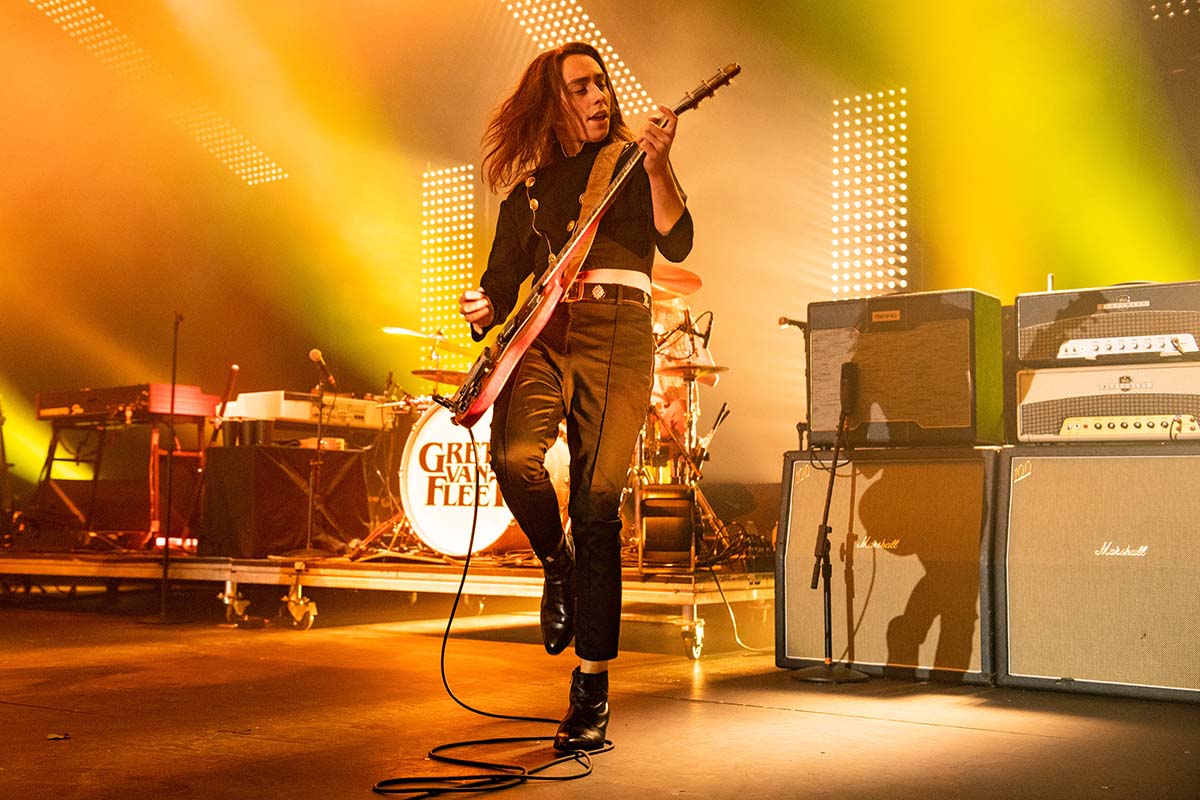
Do you guys plot out the future that much? Do you have a five-year plan?
“We do, but not necessarily in terms of where we want to be, career-wise. I think we plot what we want to try to achieve musically, but of course that can change. I mean, it’s hard to predict what will be influential at any given point. Everything’s a moving target.“
Since Greta Van Fleet came on the scene, there have been a few bands that also dabble in modern classic rock. Is there anybody out there that you look at?
“The White Stripes were past pavers, in a sense. They were very influential from a blues standpoint. We listened to them in middle school. Gary Clark Jr. is another fantastic artist. There’s the Black Keys and Cage the Elephant – they’re fantastic.“
Anybody newer?
“It’s difficult to say because I sort of dabble. I could pull up Spotify and name some groups I’ve been listening to, but they’re kind of in the same world. I love the people we’ve toured with. We select who we tour with specifically because we enjoy their music. I love Ida Mae. I don’t want to leave anyone out. We’re all in the same boat. We’re all paving a new path for our generation.“
A band like AC/DC is revered for never changing. Other bands evolve stylistically, and some, like U2, have even changed their sound completely. Could you see Greta doing something radically different from what you are now?
“That’s very interesting, and I’m glad we’re touching on it. We see ourselves as being very elastic. We like to change and we want to move in different ways. We can’t be stagnant musically – that would be death. I think I can say that each album we put out will be different from the previous one.
“There’s so much to cover, all the different types of music – folk, country, jazz, blues and rock ‘n’ roll. We’re influenced by all of it, and we want to incorporate it into what we’re doing.
"I think we see ourselves as a group that can evolve and try new things. Changing what we do over time, yeah, I think that could be beautiful and inspiring. Artists shouldn’t be afraid to completely throw something out and try something else, but it can be difficult. It’s an interesting concept, for sure.“
I really like Chris Turpin from Ida Mae. His style is really cool; it’s sort of lighter folk and blues and rock ‘n’ roll. I like what he does with resonators
Are there any guitarists you’ve been listening to lately that might surprise people?
“How contemporary do you want me to be?“
As contemporary as you like.
“OK. Well, I mentioned the White Stripes. I’ve recently re-listened to their entire discography, so I’ve been focusing on Jack White. There’s another contemporary blues artist, Cedric Burnside, the grandson of R.L. Burnside.
"He put out an album, Benton County Relic, and it’s fantastic. It’s a really great contemporary blues album. Oh, and of course, I really like Chris Turpin from Ida Mae. His style is really cool; it’s sort of lighter folk and blues and rock ‘n’ roll. I like what he does with resonators.“
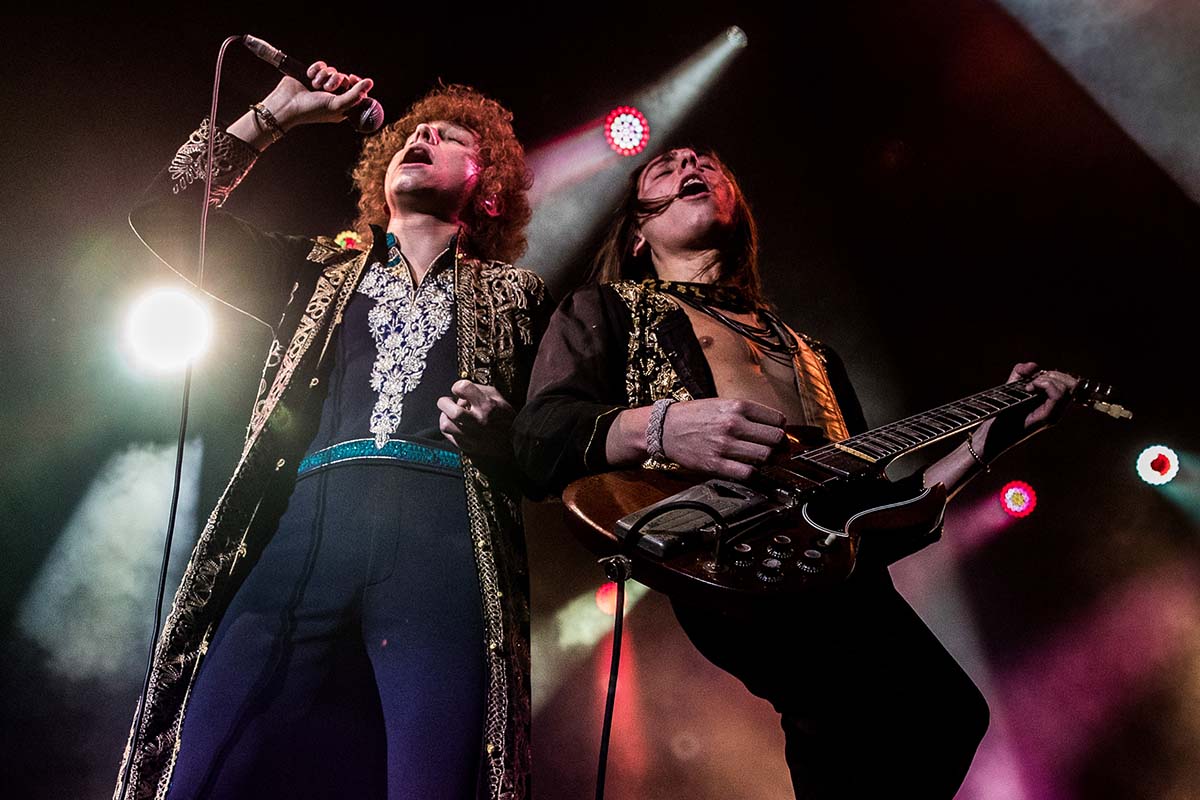
In the wake of Eddie Van Halen’s passing, a lot of people have gone back and listened to his work. How about you?
“I have, yeah. It always happens when somebody passes, how it can reinvigorate interest in their work. His whole career and the techniques he created – he’s such a dominant force. It’s crazy. When I was younger, I picked up on the tapping technique – I mean, everybody did. Everybody wanted to try to play like him.
“You know, we’ve been rehearsing, and we’ll pull out a Van Halen song. It’s such fun stuff, and when you play his riffs and you start tapping a solo, you can just feel his energy. It takes you back. You start to wonder what he was thinking at the time when he was creating all that music. He was amazing.“
You know, we’ve been rehearsing, and we’ll pull out a Van Halen song. It’s such fun stuff, and when you play his riffs and you start tapping a solo, you can just feel his energy
GVF recently moved to Nashville. Have you checked out the town’s players?
“Well, we just moved there, so we’re still in a situation of isolation. We haven’t been able to really get around and jam with people. There’s so many really great musicians here. Before the pandemic, we’d watch some of these guys on Broadway, and they’re incredible.
“If you want to be challenged beyond realistic means, you move to Nashville. You can learn from what everybody’s doing; they’ve got such different techniques and have this depth of musical knowledge. It’s nothing like the small town we grew up in. There’s a scene here, but it’s no longer a country city – it’s a music city.“
Do you sit down and try to work on various techniques? Do you work on speed or play to a metronome?
“No, no. [Laughs] I couldn’t do that. I pick up the guitar, and whatever comes out that day, that’s what comes. I do play every day – the guitar’s a real extension of me – but mostly it’s to write something or to play something for somebody.“
The pandemic actually gave us more time to work on the record. We sat down and listened to it, and we came up with a couple more songs
Do you have ruts? And if so, how do you bust out of them?
“Oh, sure. I think everybody has ruts. It’s interesting, because you pick up the guitar and it’s like, 'This sounds like something that’s becoming a song.' And then nothing comes out of it that day. You sit there and think, 'I should be able to finish this,' but for whatever reason it doesn’t happen. To me, that’s a rut, when nothing comes for a couple of days. It’s frustrating.
“I always find that there’s some way out of it, though, and the best way is to just be patient. Don’t give up, but don’t force it. If you continue to come back to it, something dawns. A lot of times, you think you’re in a rut, but it’s just part of the process. I’ve often used guitar phrases and things that I thought were nonsensical – it’s like they had no place until I just took a little time and let them be.“
The band cut most of the new album in late 2019 expecting to tour throughout 2020. COVID-19 had other plans.
“Yeah, who knew, right? By the time we came off the road in 2019, we were weary troubadours. We’d been touring a long time. So we made the record and thought, 'We’ll release it and tour on and off throughout the coming year.' Then the pandemic hit, and it was like, 'OK, now we have to re-evaluate everything.'
"It actually gave us more time to work on the record. We sat down and listened to it, and we came up with a couple more songs. Hopefully, that contributed to the album’s depth.“
Jimi Hendrix used overdrive, but you could still hear his technique
An observation about the album: You don’t overdo distortion. By that I mean your distortion doesn’t sound like a power tool; it sounds like classic-amp distortion.
"That’s right. It’s very true to the amp and the guitar. I like when you can hear the inflection of the guitar; you can hear a silky, graceful sound, almost like a violin. I love that. It can be more authentic and transparent when you’re playing a little cleaner – you can hear little details.
"I work very hard to articulate chords and notes. All of that sensitivity and technicality gets lost when you have too much overdrive. You lose all the nuances of your tone. A lot of the players I like can be heard beyond their distortion. They knew just how much to use and how to control it. Jimi Hendrix used overdrive, but you could still hear his technique.
You could hear how hard his hands were hitting the strings.
"Right. Exactly. I don’t want to lose that.

Your rhythm-lead riff on My Way, Soon reminds me of Pete Townshend. Fair enough?
“Oh, yeah! My first real guitar was a Townshend SG with P90s in it. Pete was an early influencer. For a bunch of us boys growing up, we would just put on the Who, crank it and then run around like madmen. Pete is right in the British catalog of guitar heroes – Clapton, Page, Beck.
I feel he’s sometimes underrated.
“I totally agree, but I think he’s every bit as influential as those other guys. I’ve studied him quite a bit. From a tone standpoint, there’s a symbiotic relationship between him, the guitar and the amplifier. You can hear him. It’s the same as what we were saying about Eddie Van Halen: When you play a Van Halen riff, you can feel him. But as far as My Way, Soon goes, yeah, there’s some Townshend.“
There’s so many Zeppelin songs that start simply with an acoustic and then work into the heavier electrified sections. It’s folk and then it’s rock
The guitar orchestration in Broken Bells, your symphonic mix of acoustics and electrics, it’s very Jimmy Page.
“Definitely. There’s so many Zeppelin songs that start simply with an acoustic and then work into the heavier electrified sections. It’s folk and then it’s rock. The whole idea of Broken Bells, which was written two and a half, three years ago, started with just a phrase on the acoustic guitar. We put some vocals on it, and then when we came back to it and built it up.
”Originally, we thought it was perfect, but then everybody started saying, 'It needs something. There’s no crescendo.' The song itself wanted to be very linear. It goes up and up and up and up to this breaking point, and then we were like, 'What now?'
"So we created this little turnaround with the 12-string, which I actually played on a double-neck acoustic Espana – really interesting guitar. From there it goes back to the electric. The crescendo comes with the solo and then the outro. It needed the big release.”
Which is different from Heat Above and Caravel. They’ve got cool foundational riffs, but you hold back from solos. It’s as if you’re saying, “The riff is all you need.”
”Precisely! I’m glad you picked up on that. I was really trying to make a point of that. On Caravel, when I crafted it, I was like, 'This kind of speaks for itself in a certain way. It needs to be a prevalent counterpart to the other instrumentation.' It needed to fill its space, and it does. It didn’t need much around it.
”There’s other complexities: The bridge becomes really heavy, and there’s the pre-chorus where Josh is soloing in a sense. He’s taking the lead there, and it’s so beautiful. It’s a very dynamic touch, and then we go right back into that riff.”
I learned that Jack White uses a lot of octavers, and Neil Young used them for a lot of tones. I was listening to his soundtrack for the movie Dead Man when I was working on Built by Nation
I have to bring up Page again. The riff to Built by Nation almost sounds like it could have come from Physical Graffiti. It’s very raw and sinister.
“Yeah, I hear that. I’m using an octaver on that one. That riff needed an identifiable tonality to it that separates it from other things that I’ve done. I learned that Jack White uses a lot of octavers, and Neil Young used them for a lot of tones.
"I was listening to his soundtrack for the movie Dead Man when I was working on the song. So I plugged into an octaver and transformed the tone of the riff. So it’s a mix of Jack White, Neil Young and Jimmy Page.“
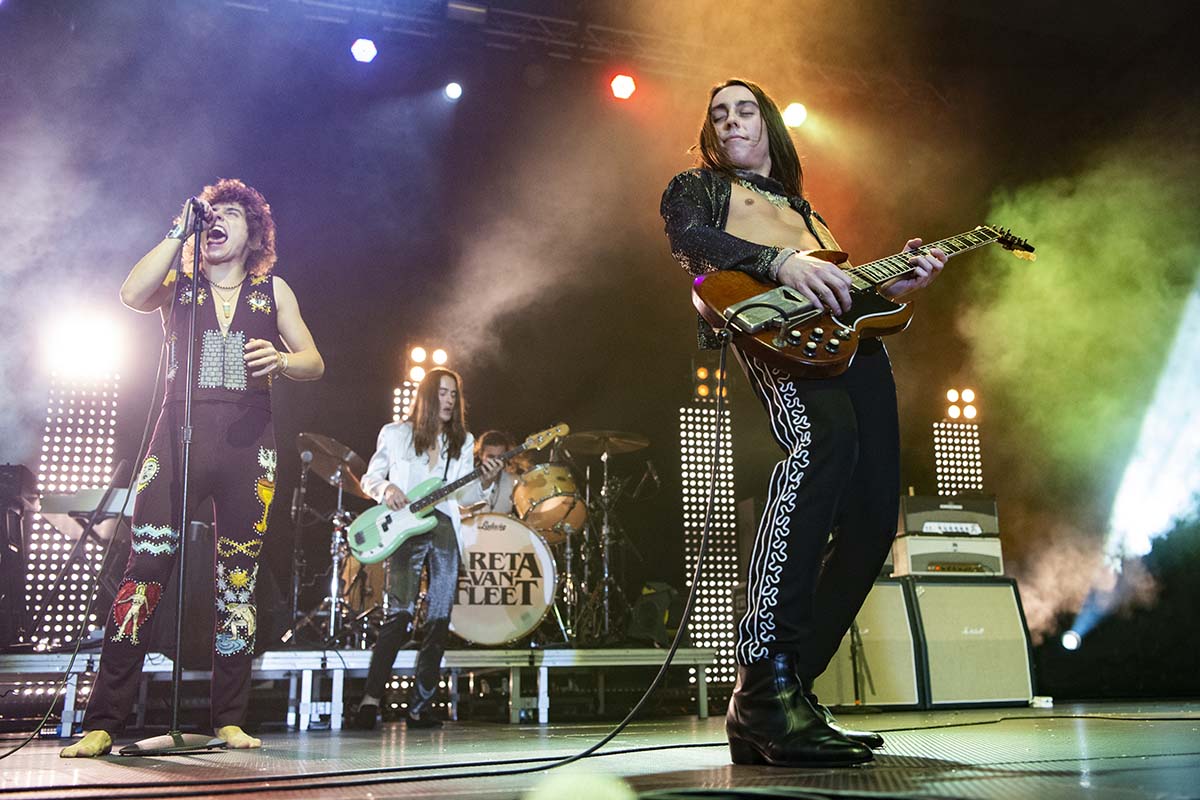
What guitars did you use on the record?
“My 1961 Les Paul is the one I mainly used; it’s got the SG shape. I had a lot of visits from friends who would bring instruments around. Greg had a couple of instruments and amplifiers that I used. One very interesting instrument turned up on Broken Bells – a factory black 1959 Gibson ES-335.
"There aren’t a lot of them around. Keith Richards has one. Johnny Marr has one. So one got dropped off and we were looking at it, like, 'Wow, it’s an artifact!' So I used it on most of Broken Bells. The solo is the 1961 Les Paul.“
I played the solo on Built by Nation on an Epiphone Casino. That was a really cool guitar
Any other guitars you want to mention?
“On The Barbarians, there’s a solo in the beginning and a Middle Eastern-sounding solo in the bridge – that’s a 1960 Fender Stratocaster. I never really used a Strat in the studio until now. What a powerful instrument. I also used a 1962 Telecaster and a 1954 Gibson Les Paul. Oh, and I played the solo on Built by Nation on an Epiphone Casino. That was a really cool guitar.
“The double-neck Espana was amazing. It’s a really rare guitar, but interestingly they’re not expensive. There wasn’t a big demand for it. I also used an Epiphone Texan – that was great. The necks on those guitars are perfect. I did a lot of the more technical acoustic stuff on the Texan because the neck is thin; it’s closer to my ’61 Les Paul. I think I also used a Gibson J-50 and a Silvertone Model 319 from the Sixties.“
What about amps?
“I used what I normally tour with. There’s the Bletchley amp. I always carry a Bletchley to the studio, and I also bring a Marshall Astoria. I’ve gotten into Fender amps. We had two Champs – one was mine and one was Greg’s – so we used them in stereo. I also used a Fender Tweed and a ’65 Fender Reverb. Another standard studio amplifier for me is a Sixties Vox AC30.“
We’d take either an Echoplex or a Space Echo, and we’d run the guitar through each one. We would stereo them. You can hear how wide-swept it is, especially if you’re wearing headphones.
You mentioned an octave pedal. Did you go pedal crazy?
“Not super heavily. One amazing thing we did was – I think it’s on a few guitar solos – we’d take either an Echoplex or a Space Echo, and we’d run the guitar through each one. We would stereo them.
"You can hear how wide-swept it is, especially if you’re wearing headphones. Pink Floyd did a lot of that stuff, and I always thought it sounded interesting. Other than that, I used a wah pedal and some reverb. That’s about it.“
Was there ever any thought to holding the record till you knew you could play live?
“I think the world needs music more than ever. So for us, the idea was to release this album now, and then we’ll write another one. I think that was what’s on the horizon.“
Do you guys get together to rehearse even though there’s no shows?
“We all live within a stone’s throw from each other, and we have a rehearsal space nearby. We’re in there writing and demoing. We do a lot of that, playing together and conceptualizing ideas. I think that’s what’s in store for us for the rest of the year – unless anything changes.“
- The Battle at Garden's Gate is out now via Lava Music.
Joe is a freelance journalist who has, over the past few decades, interviewed hundreds of guitarists for Guitar World, Guitar Player, MusicRadar and Classic Rock. He is also a former editor of Guitar World, contributing writer for Guitar Aficionado and VP of A&R for Island Records. He’s an enthusiastic guitarist, but he’s nowhere near the likes of the people he interviews. Surprisingly, his skills are more suited to the drums. If you need a drummer for your Beatles tribute band, look him up.











